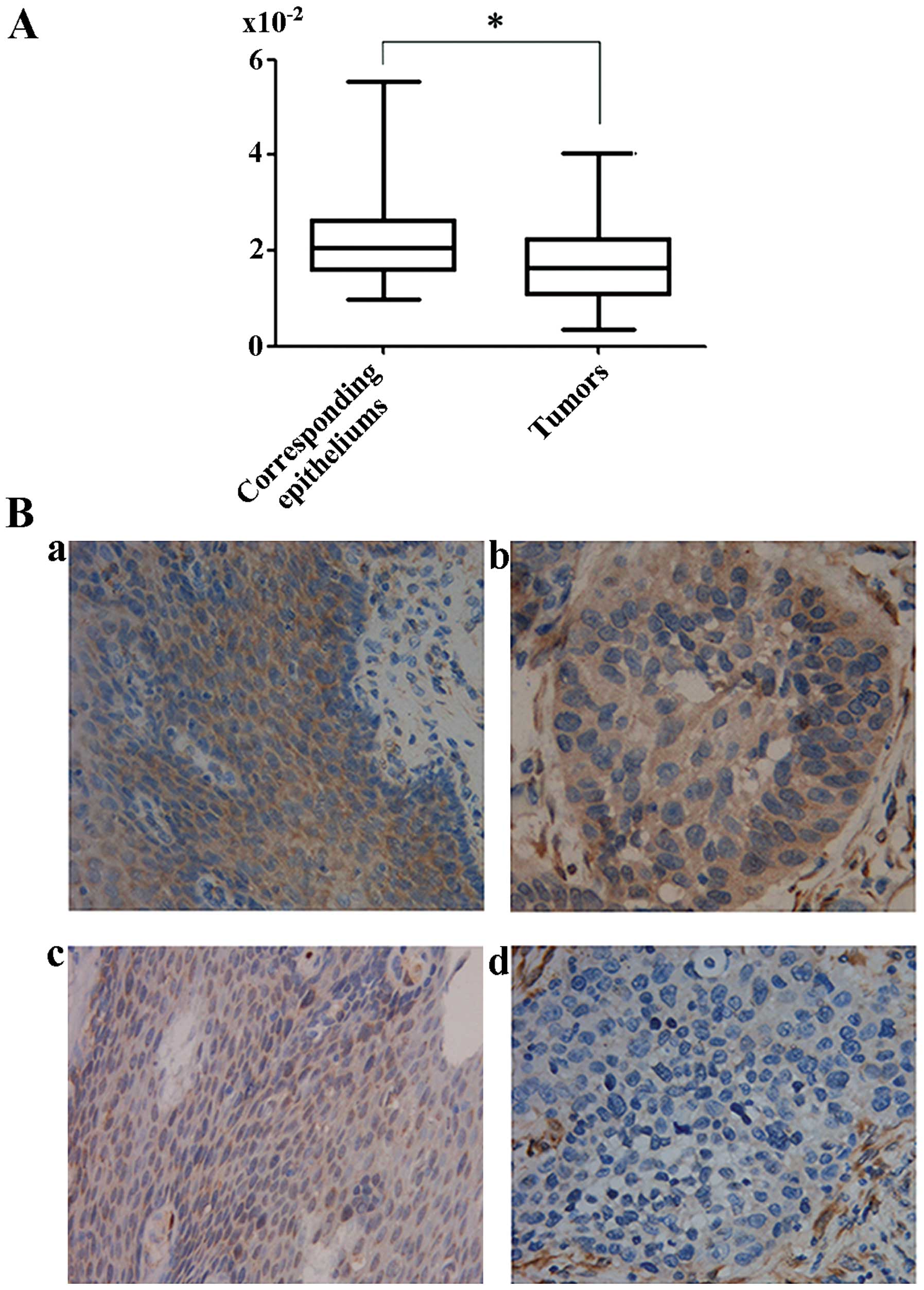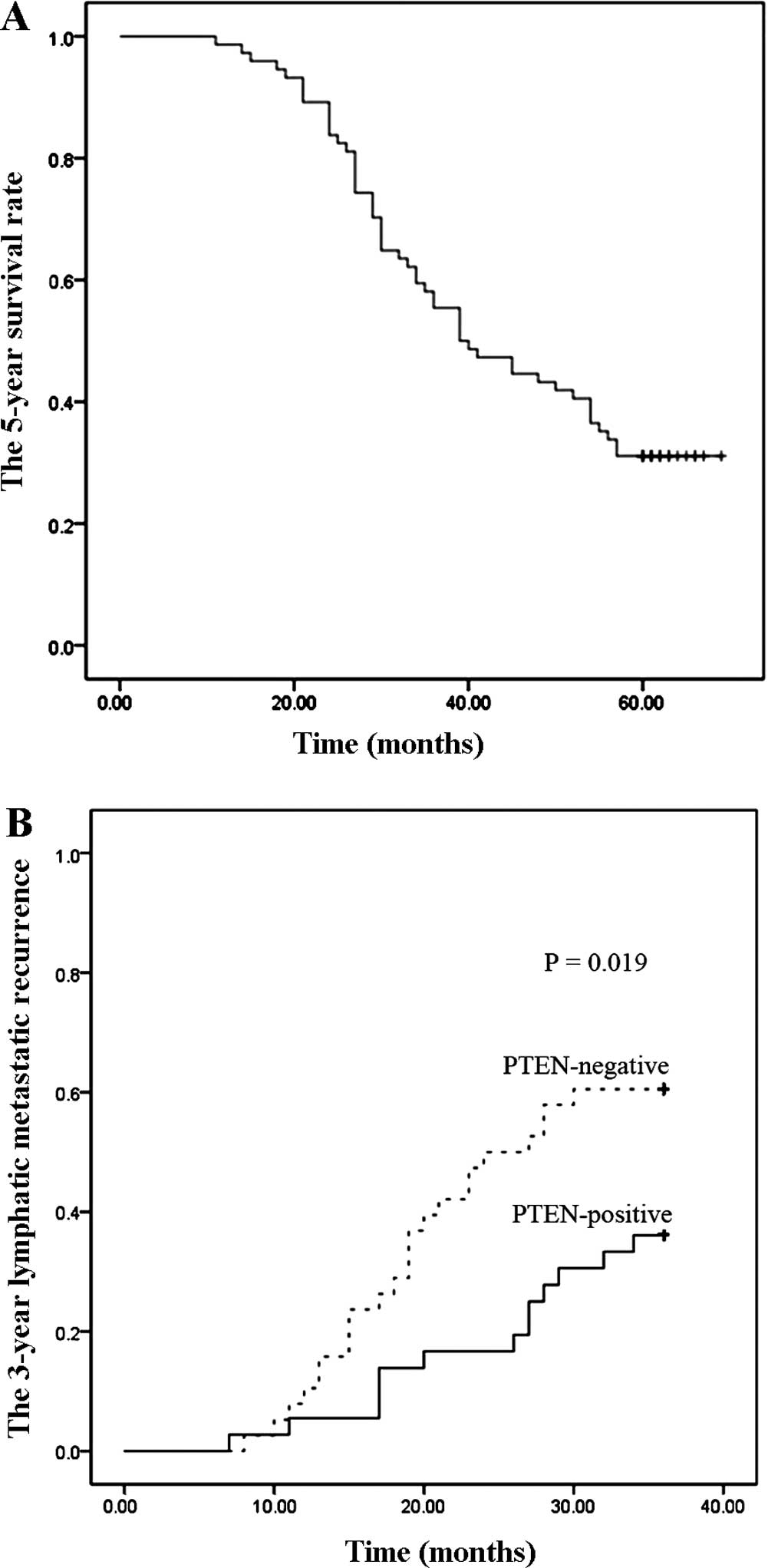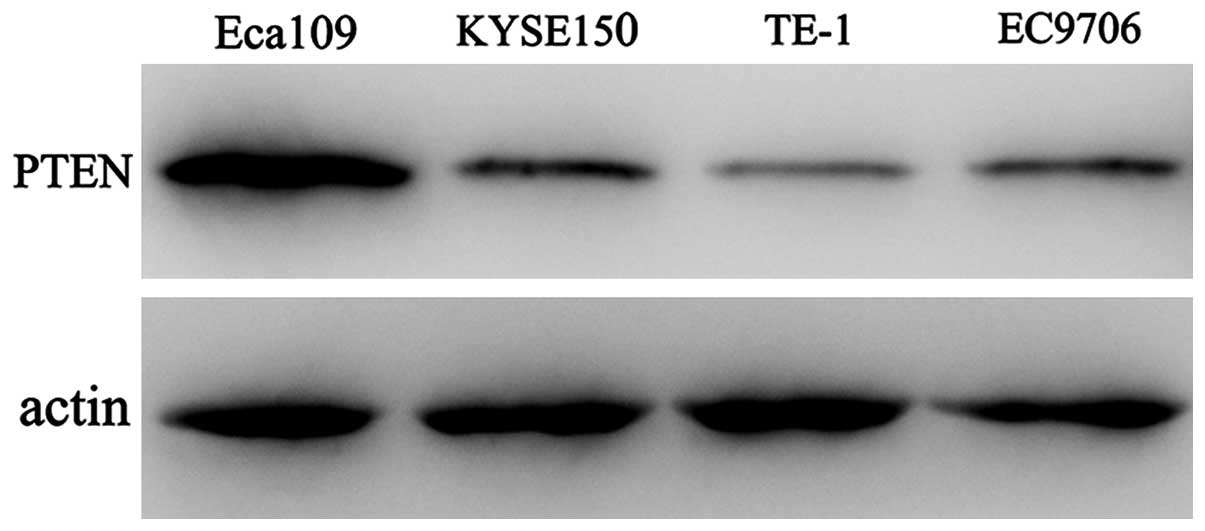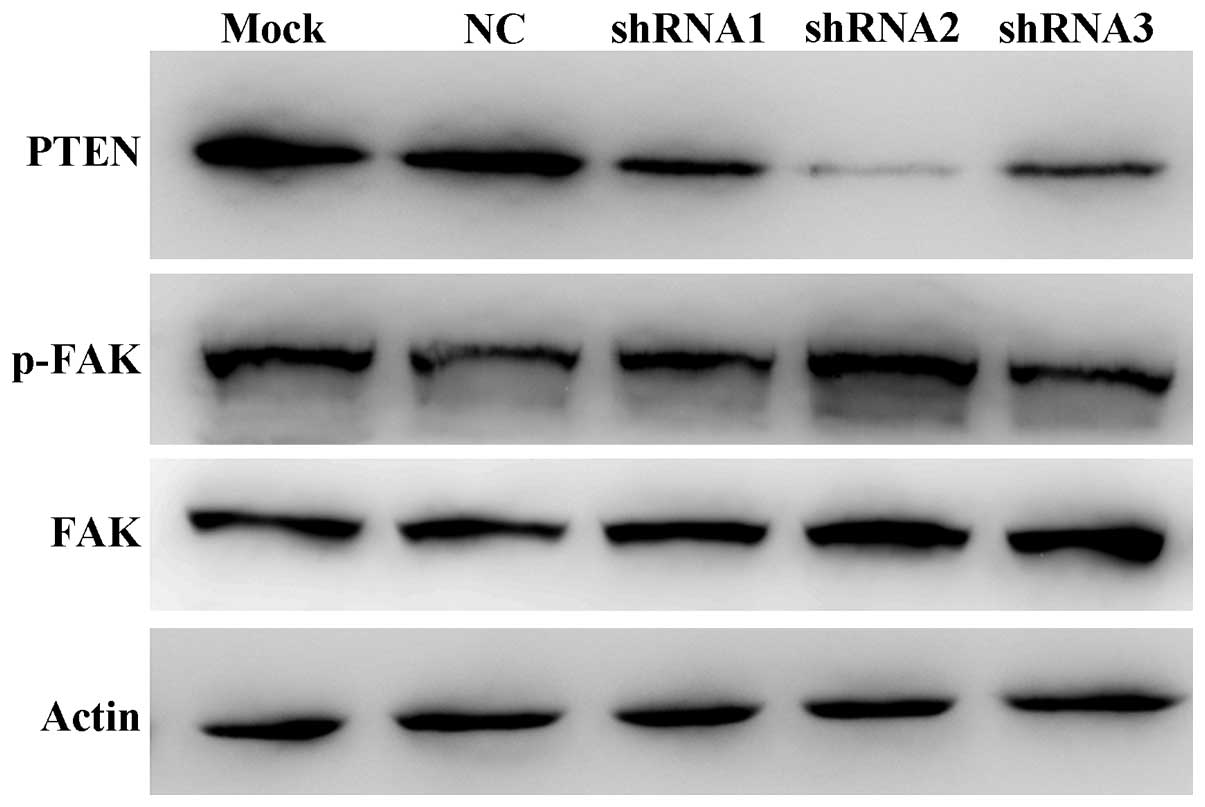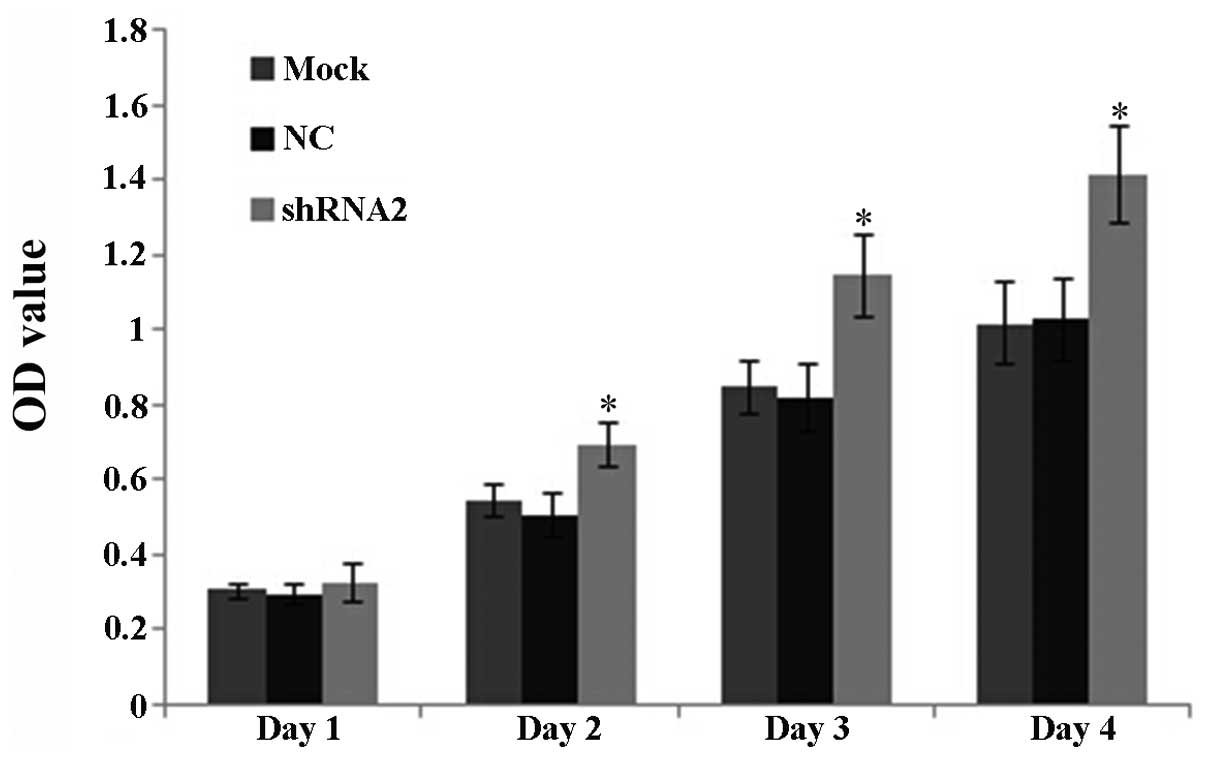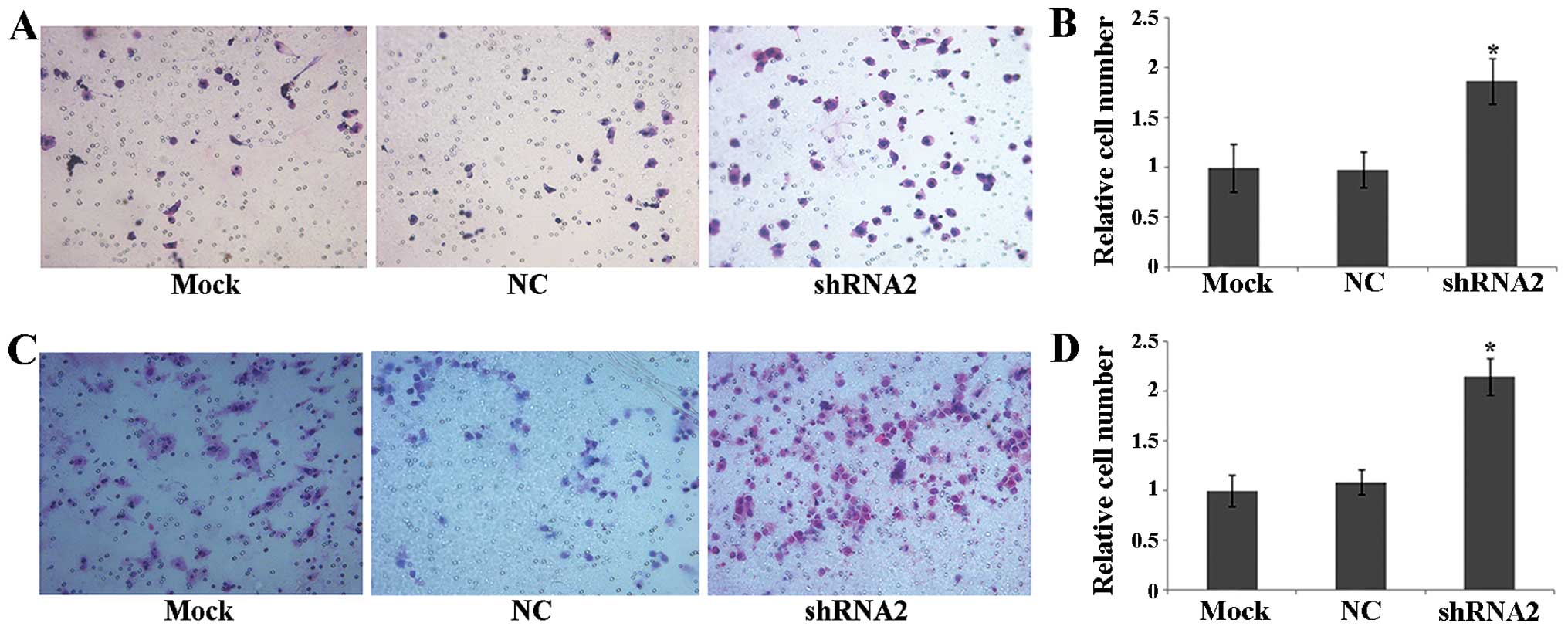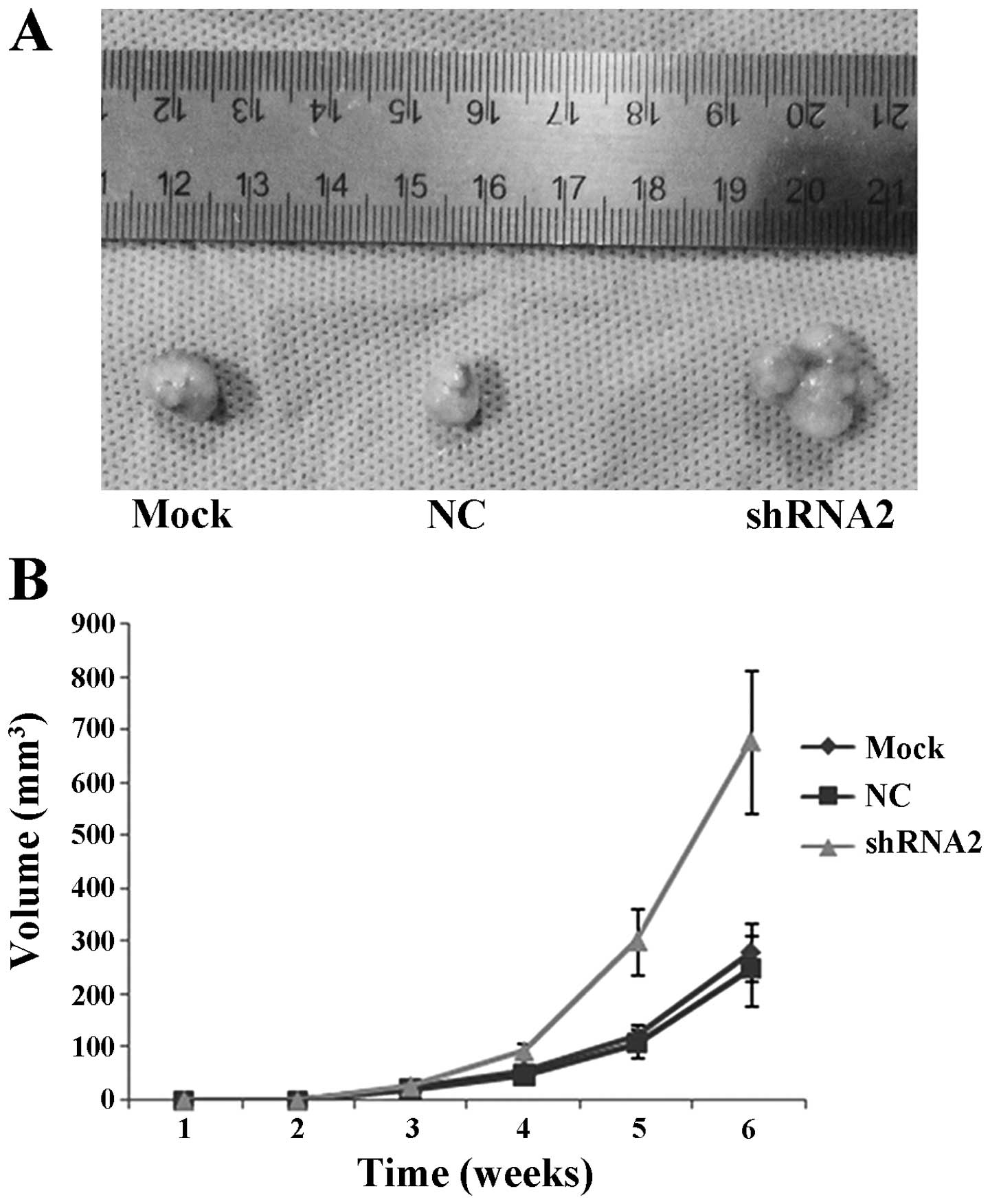|
1
|
Kamangar F, Dores GM and Anderson WF:
Patterns of cancer incidence, mortality, and prevalence across five
continents: Defining priorities to reduce cancer disparities in
different geographic regions of the world. J Clin Oncol.
24:2137–2150. 2006. View Article : Google Scholar : PubMed/NCBI
|
|
2
|
Law S and Wong J: Two-field dissection is
enough for esophageal cancer. Dis Esophagus. 14:98–103. 2001.
View Article : Google Scholar : PubMed/NCBI
|
|
3
|
Song Y, Wang Z, Liu X, Jiang W and Shi M:
CCR7 and VEGF-C: Molecular indicator of lymphatic metastatic
recurrence in pN0 esophageal squamous cell carcinoma after
Ivor-Lewis esophagectomy? Ann Surg Oncol. 19:3606–3612. 2012.
View Article : Google Scholar : PubMed/NCBI
|
|
4
|
Chen G, Wang Z, Liu XY and Liu FY:
Recurrence pattern of squamous cell carcinoma in the middle
thoracic esophagus after modified Ivor-Lewis esophagectomy. World J
Surg. 31:1107–1114. 2007. View Article : Google Scholar : PubMed/NCBI
|
|
5
|
Maehama T and Dixon JE: The tumor
suppressor, PTEN/MMAC1, dephosphorylates the lipid second
messenger, phosphatidylinositol 3,4,5-trisphosphate. J Biol Chem.
273:13375–13378. 1998. View Article : Google Scholar : PubMed/NCBI
|
|
6
|
Shi Y, Paluch BE, Wang X and Jiang X: PTEN
at a glance. J Cell Sci. 125:4687–4692. 2012. View Article : Google Scholar : PubMed/NCBI
|
|
7
|
Tamura M, Gu J, Takino T and Yamada KM:
Tumor suppressor PTEN inhibition of cell invasion, migration, and
growth: Differential involvement of focal adhesion kinase and
p130Cas. Cancer Res. 59:442–449. 1999.PubMed/NCBI
|
|
8
|
Blanco-Aparicio C, Renner O, Leal JF and
Carnero A: PTEN, more than the AKT pathway. Carcinogenesis.
28:1379–1386. 2007. View Article : Google Scholar : PubMed/NCBI
|
|
9
|
Kondo Y, Hollingsworth EF and Kondo S:
Molecular targeting for malignant gliomas (Review). Int J Oncol.
24:1101–1109. 2004.PubMed/NCBI
|
|
10
|
Tang JM, He QY, Guo RX and Chang XJ:
Phosphorylated Akt overexpression and loss of PTEN expression in
non-small cell lung cancer confers poor prognosis. Lung Cancer.
51:181–191. 2006. View Article : Google Scholar
|
|
11
|
Terakawa N, Kanamori Y and Yoshida S: Loss
of PTEN expression followed by Akt phosphorylation is a poor
prognostic factor for patients with endometrial cancer. Endocr
Relat Cancer. 10:203–208. 2003. View Article : Google Scholar : PubMed/NCBI
|
|
12
|
Koksal IT, Dirice E, Yasar D, Sanlioglu
AD, Ciftcioglu A, Gulkesen KH, Ozes NO, Baykara M, Luleci G and
Sanlioglu S: The assessment of PTEN tumor suppressor gene in
combination with Gleason scoring and serum PSA to evaluate
progression of prostate carcinoma. Urol Oncol. 22:307–312. 2004.
View Article : Google Scholar : PubMed/NCBI
|
|
13
|
Im SA, Lee KE, Nam E, Kim DY, Lee JH, Han
HS, Seoh JY, Park HY, Cho MS, Han WS, et al: Potential prognostic
significance of p185(HER2) overexpression with loss of PTEN
expression in gastric carcinomas. Tumori. 91:513–521. 2005.
|
|
14
|
Ding Y, Shimada Y, Kano M, Itami A, Kawabe
A, Maeda M, Li Z, Hong T, Sato F, Kaganoi J, et al: PTEN/MMAC1
expression in esophageal squamous cell carcinomas. Int J Oncol.
17:695–699. 2000.PubMed/NCBI
|
|
15
|
Tachibana M, Shibakita M, Ohno S, Kinugasa
S, Yoshimura H, Ueda S, Fujii T, Rahman MA, Dhar DK and Nagasue N:
Expression and prognostic significance of PTEN product protein in
patients with esophageal squamous cell carcinoma. Cancer.
94:1955–1960. 2002. View Article : Google Scholar : PubMed/NCBI
|
|
16
|
Chang D, Wang TY, Li HC, Wei JC and Song
JX: Prognostic significance of PTEN expression in esophageal
squamous cell carcinoma from Linzhou City, a high incidence area of
northern China. Dis Esophagus. 20:491–496. 2007. View Article : Google Scholar : PubMed/NCBI
|
|
17
|
Damiano V, Rosa R, Formisano L, Nappi L,
Gelardi T, Marciano R, Cozzolino I, Troncone G, Agrawal S,
Veneziani BM, et al: Toll-like receptor 9 agonist IMO cooperates
with everolimus in renal cell carcinoma by interfering with tumour
growth and angiogenesis. Br J Cancer. 108:1616–1623. 2013.
View Article : Google Scholar : PubMed/NCBI
|
|
18
|
Altorki N, Kent M, Ferrara C and Port J:
Three-field lymph node dissection for squamous cell and
adenocarcinoma of the esophagus. Ann Surg. 236:177–183. 2002.
View Article : Google Scholar : PubMed/NCBI
|
|
19
|
Dresner SM and Griffin SM: Pattern of
recurrence following radical oesophagectomy with two-field
lymphadenectomy. Br J Surg. 87:1426–1433. 2000. View Article : Google Scholar : PubMed/NCBI
|
|
20
|
Thomas M, Greil J and Heidenreich O:
Targeting leukemic fusion proteins with small interfering RNAs:
Recent advances and therapeutic potentials. Acta Pharmacol Sin.
27:273–281. 2006. View Article : Google Scholar : PubMed/NCBI
|
|
21
|
Abbas-Terki T, Blanco-Bose W, Déglon N,
Pralong W and Aebischer P: Lentiviral-mediated RNA interference.
Hum Gene Ther. 13:2197–2201. 2002. View Article : Google Scholar
|
|
22
|
Fish RJ and Kruithof EK: Short-term
cytotoxic effects and long-term instability of RNAi delivered using
lentiviral vectors. BMC Mol Biol. 5:92004. View Article : Google Scholar : PubMed/NCBI
|
|
23
|
Akhtar J, Wang Z, Zhang ZP and Bi MM:
Lentiviral-mediated RNA interference targeting stathmin1 gene in
human gastric cancer cells inhibits proliferation in vitro and
tumor growth in vivo. J Transl Med. 11:2122013. View Article : Google Scholar : PubMed/NCBI
|
|
24
|
Zhang C, Chakravarty D, Sakabe I, Mewani
RR, Boudreau HE, Kumar D, Ahmad I and Kasid UN: Role of SCC-S2 in
experimental metastasis and modulation of VEGFR-2, MMP-1, and MMP-9
expression. Mol Ther. 13:947–955. 2006. View Article : Google Scholar : PubMed/NCBI
|
|
25
|
Sawai H, Yasuda A, Ochi N, Ma J, Matsuo Y,
Wakasugi T, Takahashi H, Funahashi H, Sato M and Takeyama H: Loss
of PTEN expression is associated with colorectal cancer liver
metastasis and poor patient survival. BMC Gastroenterol. 8:562008.
View Article : Google Scholar : PubMed/NCBI
|
|
26
|
Chowdhury S, Ongchin M, Wan G, Sharratt E,
Brattain MG and Rajput A: Restoration of PTEN activity decreases
metastases in an orthotopic model of colon cancer. J Surg Res.
184:755–760. 2013. View Article : Google Scholar : PubMed/NCBI
|
|
27
|
Wikman H, Lamszus K, Detels N, Uslar L,
Wrage M, Benner C, Hohensee I, Ylstra B, Eylmann K, Zapatka M, et
al: Relevance of PTEN loss in brain metastasis formation in breast
cancer patients. Breast Cancer Res. 14:R492012. View Article : Google Scholar : PubMed/NCBI
|
|
28
|
Tamura M, Gu J, Matsumoto K, Aota S,
Parsons R and Yamada KM: Inhibition of cell migration, spreading,
and focal adhesions by tumor suppressor PTEN. Science.
280:1614–1617. 1998. View Article : Google Scholar : PubMed/NCBI
|
|
29
|
Zhang LL, Liu J, Lei S, Zhang J, Zhou W
and Yu HG: PTEN inhibits the invasion and metastasis of gastric
cancer via down-regulation of FAK expression. Cell Signal.
26:1011–1020. 2014. View Article : Google Scholar : PubMed/NCBI
|
|
30
|
Hu Y, Xu S, Jin W, Yi Q and Wei W: Effect
of the PTEN gene on adhesion, invasion and metastasis of
osteosarcoma cells. Oncol Rep. 32:1741–1747. 2014.PubMed/NCBI
|















